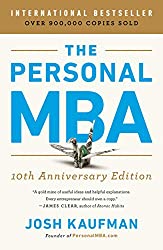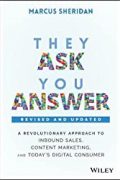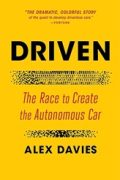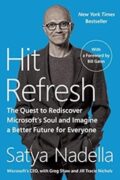
Rating: 8.0/10.
Business book that teaches you the basic mental models you need to run a business. The author argues that MBA programs are overpriced and teach you outdated and over-specialized knowledge that’s irrelevant to most businesses, and building good mental models is more useful practically. The book is organized as short sections of advice or useful models grouped by theme, and each section has a URL so you can link to it for reference. The whole book is actually freely available online.
The first chapter “Value Creation” states that each successful business must satisfy 5 properties: it must (1) create something of value, (2) that people want, (3) at a price that they’re willing to pay, (4) actually deliver the value you promised, and (5) make enough money to make the effort worthwhile. It categorizes 12 types of value creation (eg: physical product, service, subscription, resale) and the critical factors for success in each category. Need to get feedback from customers from an early stage, do this by interviews, shadow testing, building minimal viable product, and iterating.
The “Marketing” chapter is about identifying your probable purchasers, educating them about the problem and your product which solves the problem, so you can then sell to them. Strategies include involving the emotional part of their brain, weaving a compelling narrative and framing, with a clear call to action.
Conversely, the “Sales” chapter is about turning interested and potential buyers into actual customers. It’s important to build trust and make it into a win-win transaction. Pricing does not usually behave like economics textbooks except for commodities; there are many ways to determine the price such as the cost to provide the product, value of the product to the customer, and prices of similar products in the market; you can pick the framing that’s most advantageous. Some common barriers to conversion are concerns that it’s too expensive or not useful enough, so it often helps to give a free trial or money-back guarantee.
Once the customer is sold, the next step “Value Delivery” is about how to deliver high quality efficiently. A lot of improvements benefit from economies of scale where they act as multipliers when throughput is high enough. The “Finance” chapter defines a bunch of accounting concepts that are useful for tracking your company’s assets and cashflow, and explains how various types of funding work.
The next two chapters shift away from business and towards human psychology. “The Human Mind” talks about irrational cognitive biases that we all have, and can be exploited to drive sales. “Working with Yourself” talks about personal productivity tips like how to set goals and stick to them, make decisions and learn from them, etc. These ideas are not really specific to business so I’m already familiar with most of them.
The “Working with Others” chapter gives patterns for team structure in organizations. There is overhead to communication so the most effective is small teams of talented individuals. There should be a clear decision maker, while at the same time, individuals should be motivated to perform and not coerced.
The last three chapters are about systems: how to analyze them with data-driven methods, improve their robustness, avoid pitfalls of over-optimization, adapting to change, etc.
Overall, I found the first few chapters to be the most useful (maybe because I haven’t thought much about value creation and sales before); the rest was mostly stuff I already knew since it overlapped with books about personal finance, psychology, and economics, which I’m generally familiar with. The writing style is clear and concise, giving an explanation and 1-2 examples, and avoids the verbose rambling style common in many business books.



